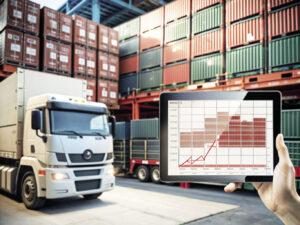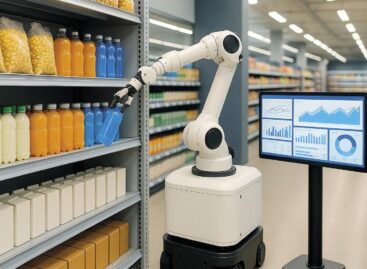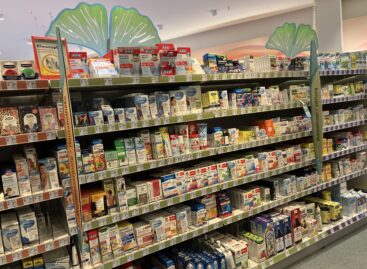Tech and track: the driving forces of FMCG dynamics
Several factors influence the Hungarian tracking market, such as technological development, for instance the spread of 4G and 5G, and the rise of Internet of Things (IoT) devices.
This article is available for reading in Trade magazin 2024/8-9

Hajnalka Joó
key account manager
iData
“Using AI and Big Data technologies makes the deeper analysis of tracking data and predictive analytics possible, which improves logistics performance and accident prevention. Integration with existing structures and strengthening digitalisation, for example in e-CMR and administration, is becoming more important. In the latter iTrack’s unique reporting system is great help”,
says Hajnalka Joó, key account manager of iData.
The company has developed the iTrack Green Services package, which provides support for CO2 emission reduction, safer transport and data even for ESG reporting. Telematics functions are also essential for the FMCG sector, as they help to optimise logistics processes, increase efficiency and cut costs. iData’s main activities for passenger car and van fleets include real-time tracking, fuel monitoring, service monitoring applications, driving style analysis, electronic logbook and automatic parking payment.

AI helps the deeper analysis of tracking data
Tailored to individual needs

Lajos D. Szabó
business unit manager
Fleetware
Lajos D. Szabó, business unit manager of FLEETware reports that small businesses are still very price-sensitive when it comes to choosing between service providers, while large companies are more willing to invest in solutions – even customised ones.
“More and more businesses with larger fleets are looking for options beyond basic vehicle management functionality: they want a hybrid, customised service. Specific needs typically mean interconnection with other enterprise models, customised complex reporting capabilities and full vehicle data digitalisation for future use”,
he adds.
FLEETware will phase out the 2G network in Hungary in a few years, gradually switching to 4G. Many EU countries have already switched off 2G or will do so in the near future. Among large companies the most popular are fleet-level statistics. In the field of software development AI is the company’s focus area, with projects already underway to use this technology for addressing specific needs of large customers.

More and more companies with larger fleets are looking for an option beyond basic vehicle tracking functionality
Complex solutions
This year shipping costs grew significantly compared to 2023, owing to the combined effects of high inflation, excise duty and road toll increases. Plus freight forwarders are still struggling as job volumes haven’t yet reached pre-recession levels, because of last year’s drop in retail sales, industrial production and construction works.

László Kálmán
country manager
Eurowag W.A.G. payment
solutions a.s.
“As a direct consequence, competition among transport companies remains fierce. One of Eurowag’s great advantages in the market is that it provides a comprehensive service that effectively addresses all customer needs in the areas of fuel management, telematics, road toll payment and financing. We also offer a free telematics solution with real-time vehicle tracking and heavy vehicle specific route planning integrated into our road toll payment service”,
says László Kálmán, country manager of Eurowag – W.A.G. payment solutions a.s. in Hungary. //
Related news
Google and German Retail Association Launch AI Training Initiative
Google and the German Retail Association (HDE) have announced a…
Read more >Dr Tamás Kozák: “High inflation casts a long shadow”
Our magazine asked Dr Tamás Kozák, general secretary of the…
Read more >LG uses AI songs to spread the message of optimism
LG Electronics (LG) has launched a new global brand campaign,…
Read more >Related news
WHO: They urge a 50 percent price increase for tobacco, alcohol and sugary drinks
The World Health Organization (WHO) is calling for the prices…
Read more >Eurozone economic growth accelerated in June
The eurozone’s economic performance accelerated in June, according to the…
Read more >This is how drug prices are changing: the government introduced price restrictions
The Ministry of National Economy’s price restrictions on medicines came…
Read more >






